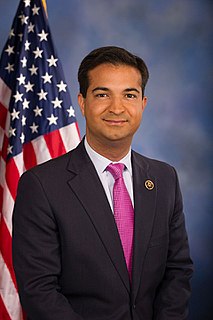A Quote by George Soros
Advocating democracy has, by other people, often been taken as a form of imperialism, and not without some justification. So the important thing in a democracy is that it doesn't necessarily have to agree with what America's interests are, and it doesn't necessarily have to be serving American interests.
Related Quotes
The good of the family cannot be achieved without consideration of an individual's important interests. If those interests are urgent and weighty, they must become important interests of the family and can sometimes have priority in case of conflict. Sometimes, members must split their differences in compromise. Over time, yielding to others at some times must be balanced against getting priority for one's interests at other times.
Citizens often think of a state's interests in terms of the promotion of ideals such as democracy, a particular way of life, or other values which they endorse or see as part of their historical continuity and identity. In this domain as in others values are not fixed, and so a state's interests are dynamic and in a constant state of negotiation and construction.
Indeed, often because of the size and weight in the world of our neighbor, we in Canada often define ourselves in contrast to American positions on things like Cuba, the Vietnam War and nuclear disarmament. Historically, Canada has not always been aligned with the United States. It doesn't necessarily serve anyone's interests - Canadian or American - to be seen as an extension of the United States.
Passionate attachment to another nation produces a variety of evils... the illusion of common interests where no real common interests exist; adopting the enmities of the other; and participation in the quarrels and wars of the other without any justification. Still another evil is that such a passionate attachment gives to ambitious, corrupted, or deluded citizens the facility to betray or sacrifice the interests of their own country.
Russia has made its choice in favor of democracy. Fourteen years ago, independently, without any pressure from outside, it made that decision in the interests of itself and interests of its people - of its citizens. This is our final choice, and we have no way back. There can be no return to what we used to have before.
It is clear that Germany needs a foreign policy in which we jointly define European interests. Thus far, we have often defined European values, but we have been much too weak in defining mutual interests. To preempt any possible misunderstandings: We cannot give short shrift to our values of freedom, democracy and human rights.


































